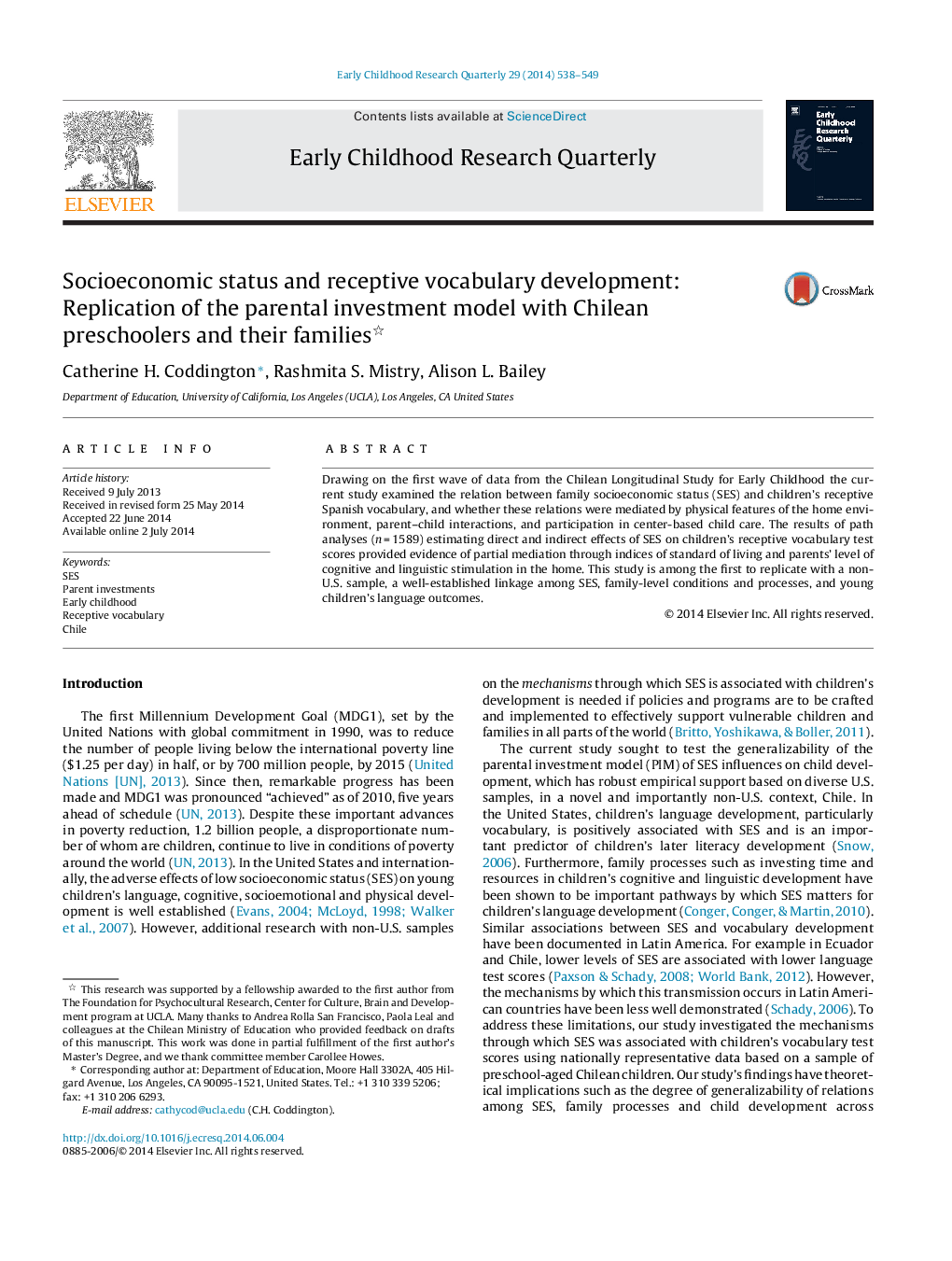| Article ID | Journal | Published Year | Pages | File Type |
|---|---|---|---|---|
| 353803 | Early Childhood Research Quarterly | 2014 | 12 Pages |
•Replicated parental investment model using sample of young children from Chile.•Mother's education and income predicted vocabulary scores via different pathways.•Parent–child interactions, standard of living linked mother's education and vocabulary.•Standard of living linked family income to child vocabulary test scores.
Drawing on the first wave of data from the Chilean Longitudinal Study for Early Childhood the current study examined the relation between family socioeconomic status (SES) and children's receptive Spanish vocabulary, and whether these relations were mediated by physical features of the home environment, parent–child interactions, and participation in center-based child care. The results of path analyses (n = 1589) estimating direct and indirect effects of SES on children's receptive vocabulary test scores provided evidence of partial mediation through indices of standard of living and parents’ level of cognitive and linguistic stimulation in the home. This study is among the first to replicate with a non-U.S. sample, a well-established linkage among SES, family-level conditions and processes, and young children's language outcomes.
